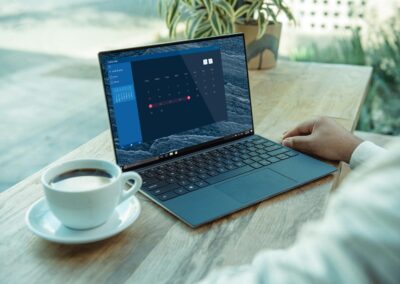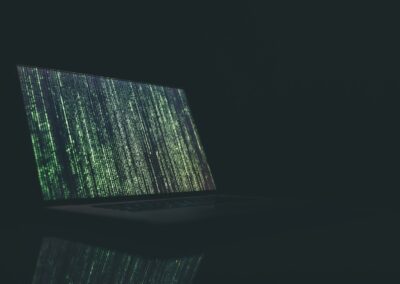Understanding the Security Risks of Remote Access
One of the primary security risks associated with remote access is unauthorized access and data breaches. When employees access company systems remotely, there is an increased risk of cybercriminals intercepting this access to steal sensitive information. This is particularly concerning in high-profile business environments like Riyadh and Dubai, where businesses handle large volumes of sensitive data daily. Unauthorized access can lead to significant financial losses, reputational damage, and regulatory penalties.
To mitigate this risk, businesses should implement strong authentication measures such as multi-factor authentication (MFA) and robust password policies. MFA adds an extra layer of security by requiring users to verify their identity through multiple methods before gaining access to the system. Additionally, businesses should regularly update their password policies to ensure that passwords are complex and changed frequently. By implementing these measures, companies can significantly reduce the risk of unauthorized access and protect their sensitive data.
Phishing and Social Engineering Attacks
Phishing and social engineering attacks are another significant security risk associated with remote access. Cybercriminals often target remote workers through deceptive emails or messages, tricking them into revealing sensitive information or installing malware on their devices. In regions like Saudi Arabia and the UAE, where remote work has become increasingly common, the prevalence of these attacks has grown.
To combat phishing and social engineering attacks, businesses should invest in comprehensive employee training programs. These programs should educate employees about the different types of phishing attacks, how to recognize them, and what steps to take if they encounter a suspicious email or message. Additionally, implementing advanced email filtering solutions can help detect and block phishing attempts before they reach employees’ inboxes. By educating employees and leveraging technology, businesses can effectively mitigate the risk of phishing and social engineering attacks.
Vulnerabilities in Remote Access Technologies
Remote access technologies themselves can also pose security risks if not properly managed. Vulnerabilities in VPNs, remote desktop protocols (RDP), and other remote access tools can be exploited by cybercriminals to gain unauthorized access to company systems. This is a critical concern for businesses in Riyadh and Dubai, where the adoption of remote access technologies is widespread.
To mitigate these vulnerabilities, businesses should ensure that all remote access tools are regularly updated and patched. Cybercriminals often exploit known vulnerabilities in outdated software, so keeping systems up to date is essential for maintaining security. Additionally, businesses should implement network segmentation to limit the potential impact of a security breach. By isolating critical systems and data, companies can prevent attackers from gaining access to the entire network. Regular security assessments and penetration testing can also help identify and address vulnerabilities in remote access technologies.
Artificial Intelligence and Machine Learning
Artificial Intelligence (AI) and Machine Learning (ML) play a crucial role in mitigating security risks associated with remote access. These technologies can analyze vast amounts of data in real-time to detect and respond to potential threats. AI-driven security solutions can identify unusual patterns of behavior that may indicate a security breach, allowing businesses to respond swiftly and effectively.
In regions like Saudi Arabia and the UAE, where businesses are at the forefront of technological innovation, the adoption of AI and ML in security measures can provide a significant advantage. By leveraging these advanced technologies, companies can enhance their ability to detect and respond to security threats, ensuring the protection of their remote access systems. Additionally, AI can be used to automate routine security tasks, freeing up valuable resources for more strategic initiatives.
Blockchain for Secure Transactions
Blockchain technology offers unique advantages for securing remote access transactions. Blockchain provides a transparent and immutable ledger of all access activities, ensuring that all actions are verifiable and tamper-proof. This level of transparency and security is particularly beneficial for businesses in Riyadh and Dubai, where data integrity and trust are paramount.
By integrating Blockchain with remote access solutions, companies can ensure that all transactions are securely recorded and cannot be altered. This reduces the risk of fraud and unauthorized access, providing an additional layer of security for remote work environments. Additionally, Blockchain can be used to manage digital identities, ensuring that only authorized users can access company systems. By leveraging Blockchain technology, businesses can enhance the security and integrity of their remote access solutions.
#SecurityRisks #RemoteAccess #MitigatingRisks #BusinessSuccess #SaudiArabia #UAE #Riyadh #Dubai #ChangeManagement #ExecutiveCoaching #EffectiveCommunication #ArtificialIntelligence #Blockchain #Metaverse #GenerativeAI #LeadershipSkills #ProjectManagement #ManagementConsulting























